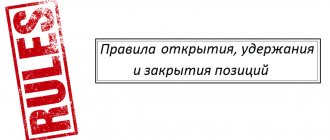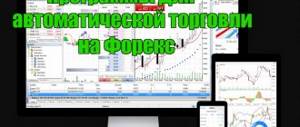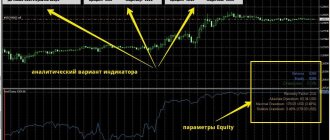08/13/2020 1 158 0 Reading time: 7 min. Rating:
Author
: Konstantin Bely
Continuing the analysis of important exchange terms, today I will tell you what forward and cash transactions on the exchange are. After reading this publication, you will learn how these 2 types of exchange transactions differ, what are the features of their conclusion and settlements on them. We will also consider 2 types of cash transactions: simple and margin. As always, all this is in simple words and with examples. So, let's begin.
Exchange transactions: concept
A transaction means not only the purchase or sale of an asset (commodity, currency, shares and bonds, other securities), but also many other agreements. For example, the subject of the transaction can be an option or a future. A huge number of accompanying conditions - deadlines for fulfilling obligations, type of order (limit, market, stop or stop-limit), type of transaction (simple or with margin), the presence of a premium (forward, option) and others complicate the process. However, the elaboration of all types of transactions allows you to rely on the terms of the contract, and the technical side and requirements for the execution of transactions are determined and worked out by the exchange itself.
Summary
So, we have studied the main features of exchange transactions, examined how financial institutions operate, within the framework of which the relevant contracts are concluded. Legal relations with the participation of traders must be established according to established rules.
An exchange transaction is a contract that is concluded within a specified time frame for a specific product or asset on terms that both parties agree to. The subject of the agreement may be one or another type of raw materials, agricultural products, currency, or company securities.
Exchange transactions are also contracts in the auction format, when the price of goods or assets is determined based on the priorities of sellers and buyers. The basis for determining prices can also be the balance of supply and demand, formed under the influence of factors, the appearance of which depends on the way in which certain macroeconomic processes take place.
Exchange transactions with securities
In the case of a transaction with securities, the subject of purchase and trade are the property rights embedded in the subject of the transaction - the security. The forms of such transactions are simple - barter, pledge, purchase and sale. The types of such transactions depend on:
- from the execution date (cash - with immediate execution, usually up to 3 days; urgent - with execution within a certain period; combined - they are also called prolongation),
- on the origin of funds - for own funds or borrowed funds (margin transactions),
- from the origin of the securities themselves - transactions with their own securities or borrowed ones.
Forward, futures (with an obligation to buy and sell at a certain price) and option (with the right to buy and sell at an agreed price) transactions are also used.
Extension transactions
p.
Introduction……………………………………………………. ……………………..2
1. Definition of a continuation transaction. Purpose of the conclusion.
Methods for prolonging transactions. Hedging operations. ……………….…..3
2.Operation report………………………………………………………………..6
3.Operation deport………………………………………………………………..8
List of used literature……………………………………………………..10
Introduction.
An important result of the structural reforms carried out in the country was a significant increase in the interest of business entities in the derivatives market and an increase in the volume of derivatives transactions.
Among the most important factors stimulating the development of this market sector are: - stable economic growth and general improvement in macroeconomic indicators, laying the foundation for long-term financial forecasting, - growing interest of enterprises in risk insurance (hedging) mechanisms, - legislative changes in the taxation of corporate profits , including those received from transactions with financial instruments of futures transactions - competition among trade organizers in the process of forming the infrastructure and operating procedures of a new market segment. Expanding the practice of concluding forward transactions by Russian enterprises aimed at insuring risks leads to stabilization and strengthening of market relations. At the same time, a consequence of the special nature of the derivatives market is the high degree of risk inherent in the operations carried out on it. The risk of futures transactions is associated with the level of price fluctuations in the market of the underlying asset, the complexity of long-term price forecasting, and the lack of reliable information about the financial condition of the counterparty.
The purpose of the work is to consider the general aspects of extension transactions, as well as the main types: deport operations and report operations.
1. Definition of a continuation transaction. Purpose of the conclusion.
Methods for prolonging transactions. Hedging operations.
Definition of a renewal transaction.
The most common types of speculative transactions are extension
forward transactions, which are a transaction with the aim of making a profit at the end of the term from previously conducted stock market speculation under a forward transaction agreement.
A rollover transaction is an over-the-counter forward transaction. One party to the transaction is an exchange speculator who has entered into a transaction on the exchange for a period of time in order to obtain exchange rate differences.
The need for a rollover transaction arises for an exchange player if the change in the exchange rate predicted by him did not take place and the liquidation of the forward transaction will not bring profit. However, the stock speculator expects that his forecast for the change in the exchange rate will be justified in the near future, so it is necessary to extend the terms of the transaction: to roll it over.
Extension transactions, which provide for an extension of the period for the purchase or sale of securities, are of two types - report, if a security is sold at a lower price and a security is purchased at a higher price with subsequent sale at a lower price (that is, at a discount, called deportation) .
Futures transactions are essentially delivery contracts, by virtue of which one party undertakes to deliver a certain amount of stock assets within a specified period, and the other - to immediately accept these assets and pay a set amount of money for them. They are usually concluded for a period of 1 to 3 months.
The purpose of the extension transaction.
A rollover transaction is concluded by an exchange player with the aim of making a profit at the end of its term from the exchange speculation carried out by him under a forward transaction agreement concluded earlier.
Methods for prolonging transactions.
There are two types of extension transactions - penopt (the modern name in economic literature is “peno”) and denopt. These varieties are determined by the position of the exchange player in the transaction: “bulls” - report; "bears" - deported.
Bulls most often make deals with bears, but they can also turn to banks. As a rule, bear operations consist of three steps, including: purchasing securities on loan; sale of papers; previously sold securities are purchased at a lower price and returned to the vendor.
Unlike the “bear,” the “bull” plays bullish, waits until the price goes up, and then sells. It is clear that the “bull” is trying to sell securities for a profit, i.e. at the moment when the Securities rate rises to a minimum, after which the Price may go down.
Thus, the difference between “bears” and “bulls” is only that if a “bull” first buys and then sells, then a “bear” first sells and then buys.
Hedging operations.
It is sometimes stated that a rollover transaction is a type of lending secured by securities.
However, there is a difference: firstly, the entire set of securities is accepted as collateral for the loan, and the loan size is on average 60-70% of their real market value; in a rollover transaction, the entire cost of the securities is paid at the exchange rate fixed in the transaction agreement.
Secondly, when lending, there is no transfer of ownership of securities as collateral, but in the case of a transaction, ownership of securities is transferred (purchase and sale transaction).
If the hedging
- limiting risk using a transaction - the report operation is not performed, then the “forward pricing” function for a large volume of transactions is included in the report operation.
It prepares the market by psychologically setting up its participants for a certain price for a stock in the future, although the forecast of this price is based on real calculations (analysis of the quality of a security, analysis of stock market conditions).
2.Operation Report.
Report
- a prolongation forward transaction for the sale of a security to an “intermediate” owner for a period specified in advance in the contract at a price lower than the price of its repurchase by the stockbroker at the end of this period.
A stockbroker holding a “bull” position resorts to reporting when the rate increase he predicted, which would bring profit from an exchange transaction, did not take place, and, therefore, the execution of the transaction at the moment will require raising funds to pay for the purchased securities, investments capital with low zero or even negative profit. If the stockbroker is confident in the correctness of his calculations regarding the increase in the exchange rate and is ready to increase the risk, then he enters into a rollover transaction or reports. In this case, the stockbroker prefers to remain in the position of a “bull” for a certain period of time - a buyer of a security, without investing his own investment resources. His counterparty to the extension transaction will execute his forward transaction agreement at the expense of his financial resources with the right to sell these securities at a higher rate.
So, when the term of the forward transaction agreement has expired, the stockbroker is forced to attract a bank or other creditor, who will temporarily agree to take the position of the seller for a percentage. Moreover, the bank, unlike the stockbroker, has already invested funds in the transaction, paying them with the counterparty of the stockbroker - the “bear”, so its interest cannot be lower than the market average.
Source: https://www.stud24.ru/finance/prolongacionnye-sdelki/13946-35369-page1.html
Types of exchange transactions
The main types of exchange transactions are:
- forward,
- futures,
- optional,
- ordinary with mutual transfer of rights and obligations regarding the object of the transaction,
- others provided for by the Exchange Trading Rules.
In turn, futures transactions - in which the execution date does not have to coincide with the day of the transaction - are divided into types:
- shelving,
- on-call,
- simple or hard
- reporters,
- prolongation,
- conditional.
The most practical is the firm type of transaction - in this case, participants are obliged to fulfill the conditions for delivery and purchase within a specified period, which does not change.
Stages of stock trading
Let us consider the stages within which legal relations with the participation of traders are carried out. Thus, participants in exchange transactions who are buyers primarily carry out such actions as:
- submitting applications for the purchase of goods or assets;
- practical introduction of positions into the trading process;
- participation in registration of transactions;
- making payments under contracts.
In turn, if the participant in the transaction is the seller, then he solves problems such as:
- listing of goods and assets;
- registration of applications for the sale of goods and assets;
- practical introduction of own positions into the trading process;
- participation in registration of contracts;
- settlement of transactions, delivery of goods or assets.
Organization of exchange transactions
The organization of exchange transactions is quite complex - not only from the theoretical and practical side, but also from the technical side. If at the beginning of the existence of exchanges a verbal statement was usually sufficient, which was formalized into an agreement by the end of trading, now most transactions are carried out electronically. This entails various consequences - for example, it is believed that the introduction of automation helps to accelerate any phenomenon - both growth and decline of markets (stock and others).
A tragicomic situation occurred in 1987 - on December 9, there was a large-scale failure at Nasdaq, after which the quote service of the National Association of Securities Dealers stopped working for almost an hour and a half. The reason for the non-participation in trading of over 20 million shares was... a squirrel that made its way into the main computer center of the exchange.
Specifics of stock exchanges
The main financial institution within which the contracts in question are concluded is the stock exchange. It will be useful to study the specifics of its work.
As we noted above, exchange transactions are those contracts that are concluded according to the rules of the founder of the trade. Thus, the main task of the stock exchange is to develop these rules, as well as ensure their compliance by building a system of effective communications with trading participants.
Stock exchanges also have other significant tasks, such as, for example, managing financial flows, ensuring investment liquidity and protecting the interests of traders within the framework of the legal mechanisms established by the legislation of the state in whose jurisdiction the exchange operates.
It will be useful to consider the key principles of operation of the relevant financial institution. Experts highlight the following combination:
- publicity of the rules;
- stability and regularity of work;
- voluntary participation of traders in legal relations.
The essence of exchange transactions is the interaction of financial market players, which is carried out on the basis of the designated principles. If they are not observed, then the contracts may no longer be considered as exchange contracts.
Speculative stock trade
Speculative refers to all types of transactions made with the expectation of increasing or decreasing the value of an asset in order to obtain subsequent benefits. This transaction is the opposite of hedging. There are also special names for speculative transactions that came from the French language: deport (for a decrease in value in the future) and report (for transactions that imply benefit from a significant increase in value and profit from the resulting difference). A speculative exchange transaction does not provide for the purpose of reducing risks.
Types of transactions on the stock exchange and their features
The agreement itself must be subject to official registration, and its content certainly includes a mention of the object, the amount of obligations, cost and deadline for registration.
Concluding a contract between two citizens based on the rules recommended by the market itself (currency, commodity, stock, etc.) is the same meaning that all types of exchange transactions have.
Cash spot transactions
A spot transaction is a separate type of transaction where payment for an exchange commodity occurs within a minimum period of time. The mentioned period includes the fastest option - transferring money by payment through a bank, which lasts a maximum of 1-2 days.
This transaction is concluded when one party can immediately make a payment, and the second can fulfill the agreed goods within a short time frame. Many types of cash agreements are carried out automatically, which allows you to respond to a decline in the situation with securities.
Short trades
A short sale agreement is the sale of shares that in fact do not belong to you and do not exist, but they can be sold by borrowing. A financial transaction is considered a speculative contract.
The broker lends money and, by selling the security, hopes that it will fall in value, and then it can be bought back much cheaper. After the return, all profits remain with the player. And the broker himself takes a commission on sales and repurchases.
But we must remember that such an operation is carried out with great risk: the operation can end not only in profit, but also in loss.
Transactions on credit
Credit agreements are also called marginal or “leveraged” (from 1:1 to 1:1000).
Here brokers also give loans and again take a percentage. This kind of exchange trade is popular in the Forex market. You should take this type of loan with caution: if you take more than you have in your account, there is a high risk of easily losing everything. Any price movement against the position and loss will constitute a significant portion of the exchange trader's funds. In order not to lose the borrowed money, the broker has the right to close the position, withdraw all funds and leave on the balance the amount that was before the start of work, minus losses and commissions.
Arbitration
An arbitrage transaction scheme is a contract of one trader with a single market instrument, at the same time, but on different trading platforms. Securities are often traded on different exchanges: if you purchase them cheaper on one, you can then resell them on another at a higher price.
The final difference in cost, although small, is possible to earn money due to the number and volume of transactions.
There are many variations of such transactions, but they are united by the fact of quick organization. Due to the fact that the rate is constantly changing, movements on the same paper coincide, and delays in the difference in amount are minimal.
Futures transactions
Fixed-term contracts are agreements that have a clear deadline for the delivery of goods, calculation and establishment of tariffs. They are characterized by the presence of a significant period of time between registration and fulfillment of the conditions.
The longer the period between the start date and the end date, the higher the risk participants are exposed to. According to their mechanism, such agreements are divided into: firm, conditional and extension. Term transactions (without a true commodity) often include futures and options.
Fixed price or firm deals
In such sales and purchase agreements, price and term play a major role. Therefore, counterparties do not have the authority to change the conditions, no matter how the price of a product or security changes.
The buyer expects that, by the time of settlement, the tariff for the object will be higher than he agreed to pay, and the seller hopes for the opposite situation.
It is customary to call transactions where obligations are not subject to change: they must be fulfilled within a clearly designated period and at a fixed price, since they are standardized in form. Therefore, they are acceptable when there is information about the movement of money.
Futures
Futures transactions are another version of a firm agreement, where not the product itself is purchased, but its price at the time of conclusion. The price is fixed by mutual agreement between the seller and the buyer: it can be higher or lower than the price of the asset (shares or bonds) on the exchange now.
In fact, this is an agreement related to the mutual transfer of rights and obligations in relation to typical contracts for the supply of exchange goods. Such paper implies alienation (assignment) of the opportunity to sell or buy any product.
Floating Value Transactions
Speculative operations are those types of transactions that are carried out with the expectation of increasing or decreasing the price of an asset in anticipation of future benefits.
This transaction is opposed to hedging and is sometimes called deport (if the price decreases in the future) or report (if it implies benefit from an increase in tariff and profit from the difference). Exchange operations do not take into account other risk reduction goals. Such transactions may sometimes not even be completed: then the participants refuse to complete the transaction and receive a bonus for refusal.
Optional
Option agreements are contracts related to the assignment of rights to the future transfer of obligations in relation to an exchange commodity or a contract for its supply in order to secure financial transactions.
According to the implementation technique, there are several types: option to sell (put) or buy (call), double or rack (double), as well as complex and multiple.
More often, a purchase transaction allows the buyer to purchase any package of securities at the appropriate cost during the term of the agreement. And the seller is obliged to sell this package if the holder requests it.
Prolongation
A rollover contract is an operation to extend a fixed-term transaction. In situations where the contract is already gradually expiring, and at the moment the price level is fixed, if the requirements do not satisfy the buyer, he has the right to request an extension (prolong) of the agreement.
Such a transaction is called a report, and when the seller is primarily interested in extending the transaction, the transaction is called a deport.
Futures exchange transactions
Urgent are all types of exchange transactions in which the deadlines for fulfilling obligations may not coincide with the day of the transaction. The calculation is carried out upon expiration either on a specific date or throughout the entire period. As a result, obligations under the transaction can be fulfilled in the middle or at the end of the month. The rate remains fixed on the day the transaction is executed. Futures transactions are divided into simple, rack, call, report, conditional, propositional.
An important nuance: the contract may also indicate the moment of establishing the value of the asset - for example, the day of sale, a specific date, or the current market value.
The essence of stock exchange transactions
The essence of any exchange transaction is the conclusion of an agreement between two parties within the limits of the conditions dictated by the exchange (currency, commodity, stock or other). In this case, the transaction must be registered, and its content is a listing of the object, volume of obligations, price, execution date and settlement terms. Transactions are concluded on traded goods, stock assets that have been admitted to quotation.
An exchange transaction allows you to realize many opportunities: attract investments, agree on the supply of goods, use tools to reduce or distribute risks.
The role of the state in the activities of exchanges
Another criterion for classifying exchanges is the degree of government involvement in their activities. So, there are free financial institutions, and there are those that operate according to regulations determined at the legislative level. In this case, the state can determine the procedure for concluding exchange transactions and regulate the conditions for admission to participation in the relevant legal relations.
The interest of the authorities in this case may lie in the formation of legal trading conditions that are attractive to domestic and foreign investors, who can direct capital to the jurisdiction of the national stock market. But solving this problem also involves working to improve fundamental economic indicators. First of all, sustainable GDP growth and its timely diversification.
In order to make the country's stock markets attractive, the state must prepare a macroeconomic framework for this. Especially if it is intended to attract primarily foreign investors. It should be noted that most of the largest exchanges today are still regulated by states at the level of national legislation or international treaties. Regardless of the economic component of attracting capital, effective legal regulation of exchange transactions is the most important condition for the interaction of financial market players.
Cash (spot) transactions - types of exchange transactions
A spot transaction is a type of transaction in which payment for goods on the exchange is made in the shortest possible time. Cash (spot) transactions—types of exchange transactions with fast payment—are often said to transfer money “instantly.” But we are actually talking about the period for transferring funds by bank payment, which is one or two days.
This type of transaction is concluded in cases where one party is ready to pay immediately, and the other is ready to deliver the goods in a short time. Many types of cash transactions are carried out automatically or semi-automatically. This allows, for example, to play short when trading securities.
Determining prices on the stock exchange
Prices within exchange transactions are formed on the basis of three main mechanisms:
- based on agreements between traders;
- based on market patterns formed on the basis of factors that are characterized by a macroeconomic nature;
- according to the auction principle.
It can be noted that contract prices, one way or another, in most cases are guided by market indicators. They are usually considered as the main source of information for determining the terms of the contract.
Exchange transactions are also those contracts that are concluded as part of auctions. Let's study the features of these financial institutions in more detail.
How to make money on a decline
To find out how to make money on a decline, you should turn to the mechanism of borrowing securities. A trader may sell securities that are not available in his account. Instead of real securities, they are sold on credit from a broker, and at a certain price.
You can sell loan shares at the moment when their price is highest in the forecast range. In this case, the loan will be repaid later, when the value of the shares used in trading has significantly decreased. The difference in the cost of the selected shares will be the net profit of the short trader.
Myth 2. You can only trade on the stock exchange through a broker
For most exchanges, this rule is indeed true - only professional market participants, or stock brokers, have the right to participate in trading. They can trade:
- On behalf of the client and at his expense
- On behalf of the client at your own expense
- On your own behalf at the expense of the client
This is how the London Metal Exchange, the New York Mercantile Exchange, the St. Petersburg International Commodity Exchange, and the ETS Commodity Exchange (Kazakhstan) work.
BUTB took a different path. Trading through a broker is not mandatory; companies can participate in trading on their own - from submitting an application to signing an exchange purchase and sale agreement. To do this, you need to obtain an electronic digital signature (EDS), be accredited at the exchange and train one or more traders.
When contacting a broker, you don’t need to do all this. But in this case, after each transaction you need to pay a brokerage commission.
Types of prices for transactions with real goods
Types of prices for transactions with real goods, also called types of prices for real goods, include spot and forward. They apply to the relevant types of transactions for the purchase and sale of goods.
The spot price is the price of a product that is offered for purchase at a given specific moment. This is the cost that the buyer will pay to the seller if he agrees to the deal immediately.
For items with a delivery time of more than a month, a forward price is often used. This is the price taking into account deferred delivery, when the goods are paid for in advance, but for objective reasons its sale cannot be carried out close to the time of payment.
Features of exchange auctions
Exchange auctions are classified into 2 main types - regular and double. The first include auctions in which:
- sellers compete with each other in conditions of relatively low demand for goods and assets;
- there is interaction between buyers when demand is too high.
The classic, British version of an auction involves an increase in the price of a product or asset from the minimum to the price at which the sale takes place. Applications from participants in transactions in the status of sellers can be submitted before the auction actually begins. In this case, a quotation list of prices is generated. The size of the step within which the auction price of a product or asset increases is usually determined in advance. As a rule, this is a certain percentage of the original price. As soon as the buyer offers the maximum amount of funds offered, the product or asset is sold.
Exchange transactions at double auctions are no less common. They involve mutual competitive interaction between sellers and buyers. Goods or assets are bought at the maximum price and sold at the minimum.
Transactions for a period (without real goods)
The so-called forward transactions got their name due to the introduction of the concept of a payment period, which differs from the minimum possible. Time-based transactions (without an actual commodity) include futures and options options.
The futures price is set at the time the agreement is drawn up and is fixed with the expectation that the real value of the commodity will remain virtually unchanged over time.
A contract can also be concluded through an option - the right to purchase a product at a fixed price within a specified time range. The buyer of the option is not obliged to purchase the product immediately, but can resell it at a favorable moment.
Myth 6. People trade on the stock exchange only because it is required by law.
Indeed, Resolution of the Council of Ministers of the Republic of Belarus No. 714 “On measures to develop exchange trading on commodity exchanges” approved the list of goods with which legal entities and individual entrepreneurs are required to conclude transactions at BUCE exchange trading.
But the list does not cover all the goods that are on the exchange. Only in the classic exchange sections of metal, timber and agricultural products, the share of “optional” goods exceeds 25%. And in the section of industrial and consumer goods there are no “mandatory” positions at all.
Exchange trading is just one of the possible schemes for selling goods, even those included in the mandatory list.











